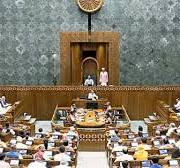New Delhi: In a significant turn of events, the government has decided not to introduce the *One Nation, One Election* Bill in the Lok Sabha on Monday, despite it being previously scheduled for December 16. The updated list of business for the day no longer mentions the bill, leaving uncertainty about its presentation in the current Winter Session of Parliament, which concludes on December 20.
Earlier, copies of the bill were distributed to Members of Parliament (MPs) to allow them time for review. With only four working days left in the session, the window for introducing and debating the bill is narrowing.
The Union Cabinet, chaired by Prime Minister Narendra Modi, had approved the draft of the bill on December 12. It comprises two components: a Constitutional Amendment Bill to facilitate simultaneous elections for the Lok Sabha and state assemblies, and a second bill addressing elections in three Union Territories with legislative assemblies.
Challenges and Legislative Requirements
The Constitutional Amendment Bill requires a two-thirds majority in Parliament for passage, while the second bill only needs a simple majority. The implementation of the *One Nation, One Election* framework would mark a major shift in India’s electoral system, consolidating elections at the national and state levels into a single cycle.
This initiative has been a priority for the Bharatiya Janata Party (BJP), as stated in its manifesto for the upcoming 2024 Lok Sabha elections. However, with time running short in the current session, questions remain about the timeline and strategy for advancing this ambitious legislation.
A Landmark Reform Awaiting Consensus
The *One Nation, One Election* proposal aims to streamline governance and reduce the frequency of elections, but it also faces challenges in building consensus among political stakeholders. As the government weighs its next move, the delay in introducing the bill adds another layer of complexity to this highly anticipated reform.






